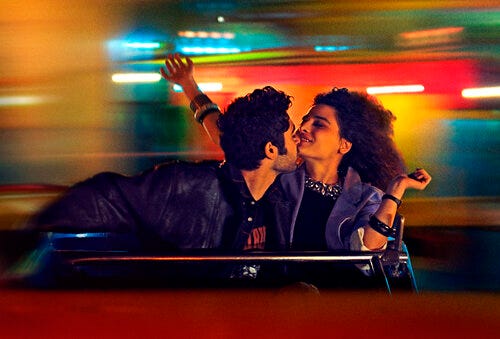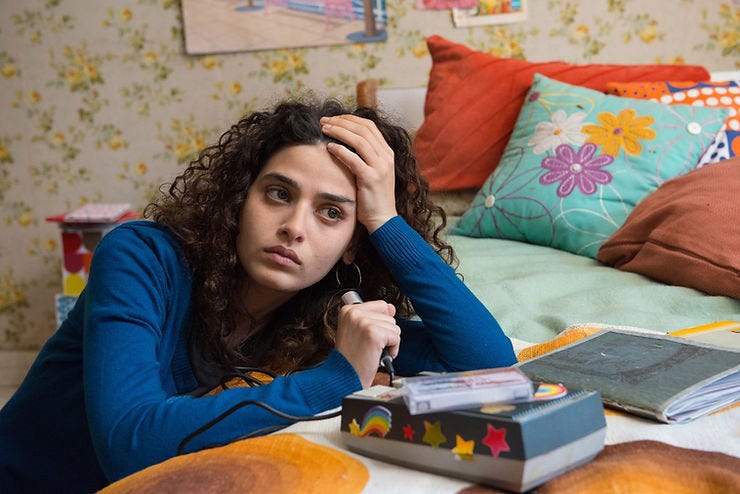Review: Memory Box (2021)
A film that spans generational and geographical borders as a teenager becomes absorbed in her family history.
Memory Box is a film that spans generational and geographical borders as a teenager becomes absorbed in her family history. When Alex Saunders (Paloma Vauthier) digs into the box which contains an extensive archive from her mother’s (Rim Turki) past, she discovers more about her family and heritage than she ever expected.
Living in Montreal, Canada, up until this point the mother and daughter hadn’t talked about Maia’s earlier life in Lebanon. There may have been an element of wanting to shield her daughter from her past, but Alex’s curiosity only grows as she flicks through albums of secret photos and listens to cassette tapes of her mother’s recordings about her life before and as Beirut was under siege. Maia is reluctant to revisit her youth, and as Alex uncovers more images and anecdotes, we begin to realise why.
Maia was an avid and thorough documentarian, taking multiple photographs of people, buildings and moments as the Lebanese Civil War impacted every part of her life during the 1970s and 80s. As the tension between civilians and militia increases, personal relationships are affected. The usual parental panic about boyfriends being a bad influence is heightened as Maia and her love, Raja, sneak around in the quietest parts of the city they can find.
Directors Joana Hadjithomas and Khalil Joreige bring the past alive with flashbacks of Maia in Lebanon living with her parents, partying with her friends and, ultimately, fleeing to Canada. The use of experimental animation and multimedia art adds another layer to the box of memories as certain recollections from the past are adorned with additional colours, textures and effects to recreate a time in her life full of emotional and physical upheaval. We look back at her years as a young adult with sepia tinted specs, and amongst the cloak of tragedy steadily falling on her country, there is joy and love to be found too.
Romance aside, the sense of loss experienced by Maia is evident in the collages of shelled buildings and desperate audio tapes documenting her time in ‘captivity’ as they wait for the bombs to stop falling. She says: “I record just to stay sane. I only want the noise to end.” Her recordings and penchant for photography provide a coping mechanism for the displacement and heartache that she feels. The loss of their home – and of hope – isn’t something that everyone can deal with, though, as we find out.
Though the wounds of war remain in the city of Beirut today, when Maia is able to open up about her life prior to Montreal with Alex, it feels like a cathartic experience for them both. Alex finds out more about her mother through her box of memories than she could have ever anticipated, and in sharing the reality of her past with her daughter, Maia is able to work through the trauma she experienced thirty years ago. She had already moved on, but there were aspects of her life in Beirut that she needed to process before she could completely rebuild that part of her.
As Blondie’s ‘One Way Or Another’ plays for a second time at the end of the film, the lyrics “One way, or another, I'm gonna find ya / I'm gonna get ya, get ya, get ya, get ya,” express a knowing sense of defiance, and a new lease of life as Maia and Alex – as mother and daughter – continue on with life at peace with their heritage, past, and future. It's a satisfying conclusion to a chapter of a life told with empathetic detail and imagination.
Verdict: An engrossing look at a life of two halves through the curious eyes of a daughter who is desperate to know who her mother really is, and where she came from.
Overall? ⭐⭐️⭐️.5
Big screen appeal? 🎬🎬🎬
Accolade eligibility? 💡💡
Study-worthy? 📚📚📚




